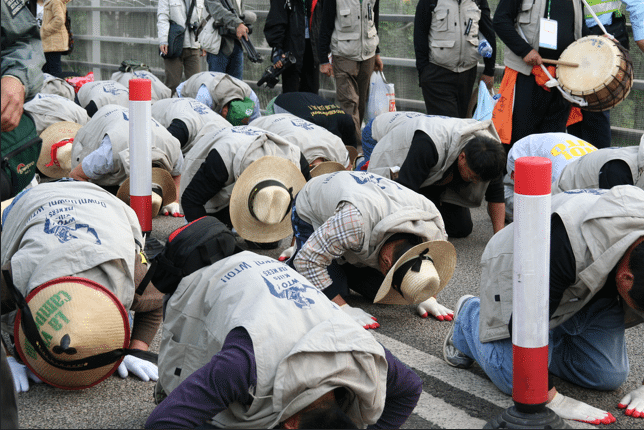In December 1976, the sleepy city of Korsakov, on the southern-most tip of Sakhalin island, witnessed a picture that few if any Soviet cities outside Moscow or Leningrad would see in the days of Brezhnev. It was the sight of a real, open anti-government demonstration, albeit small. A group of Koreans – actually, members of few extended families – gathered in front of the local party committee. Their demand was simple: They wanted to be allowed to return to their homeland, South Korea, from which they – or rather elder members of the families – had come in the 1930s and 1940s.
The 1976 “Korsakov incident” and its tragic aftermath, which we will discuss in a moment, were consequences of the Sakhalin Koreans’ repatriation movement. But these events came as a great shock to the authorities.
In December 1976, the sleepy city of Korsakov, on the southern-most tip of Sakhalin island, witnessed a picture that few if any Soviet cities outside Moscow or Leningrad would see in the days of Brezhnev. It was the sight of a real, open anti-government demonstration, albeit small. A group of Koreans – actually, members of few extended families – gathered in front of the local party committee. Their demand was simple: They wanted to be allowed to return to their homeland, South Korea, from which they – or rather elder members of the families – had come in the 1930s and 1940s.
The 1976 “Korsakov incident” and its tragic aftermath, which we will discuss in a moment, were consequences of the Sakhalin Koreans’ repatriation movement. But these events came as a great shock to the authorities.
Become a member for less
than $5.75 per week.
Unlimited access to all of NK News: reporting, investigations, analysis
The NK News Daily Update, an email newsletter to keep you in the loop
Searchable archive of all content, photo galleries, special columns
Contact NK News reporters with tips or requests for reporting
Get unlimited access to all NK News content, including original reporting, investigations, and analyses by our team of DPRK experts.
Subscribe now
All major cards accepted. No commitments – you can cancel any time.












